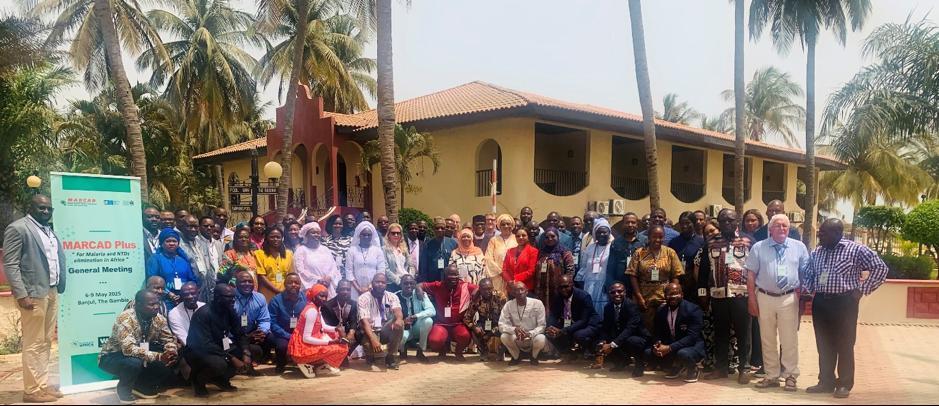Africa-Press – Gambia. The Medical Research Council Unit – The Gambia at the London School of Hygiene and Tropical Medicine (MRCG at LSHTM), in partnership with the Malaria Research Capacity Development (MARCAD) in West and Central Africa, recently held its first ever MARCAD+ general meeting 2025 in Banjul.
Held at the Ocean Bay Hotel, the event brought together leading researchers, principal investigators, public health experts, fellows, and key stakeholders from across The Gambia, Senegal, Mali, Ghana, Cameroon, Sierra Leone, Guinea-Bissau, and beyond, to reflect on progress, share experiences, and chart the way forward in the fight against malaria and Neglected Tropical Diseases (NTDs).
MARCAD+ is the second phase of the MARCAD programme, focused on building research capacity at Master’s, PhD, and Postdoctoral levels in malaria control, elimination, and NTDs (specifically schistosomiasis and soil-transmitted helminths) in West and Central Africa. It is supported by the Wellcome Trust and the Foreign Commonwealth & Development Office (FCDO), in partnership with the Science for Africa Foundation (SFA).
Established in 2015, the MARCAD Consortium is a network of African research institutions supporting collaborative research led by Africa-based scientists.
Prof Alfred Ngwa of the Medical Research Council Unit, said The Gambia is proud to host such an important event that will help shape research efforts on the content. He said the MRC continues to remain relevant in The Gambia and the rest of the region.
Mr Ngwa said there is need for more support and collaboration for research led by African based scientists.
“We have facilities that are available that receive fellows from other programmes that come to use our facilities to do their research and that is the purpose of having an institution like MRC in The Gambia participating in such programmes,” he said.
Denis Rutendo Chopera, Senior Programme Scientist for Africa Foundation (SFA), said among other things, the meeting will also help galvanise efforts for more support and to promote mentorship programmes for personal development.
“I look forward to a very engaging and more scientific insights into malaria research and the cutting-edge research that you are conducting under Marcad and over the next few days. I also would like to get more insights from special training,” he added.
Prof Oumar Gaye, UCAD Senegal Chair, said their vision is to develop the future African scientific leaders to have a positive impact and to have a wonderful leadership in African Research Professor.
“We have increased our capacity in GFCPS and it’s a very important aspect of equity and now scientific citizenship,” he said.
Dr Halima Abdullah, Chair Marcad Plus External Advisory Board and Her Excellency Harriet King, the British High Commissioner in The Gambia, also made similar comments.
The African medical scientists and malaria research experts also called for more collaboration and support to African-led medical research programmes.
For More News And Analysis About Gambia Follow Africa-Press






